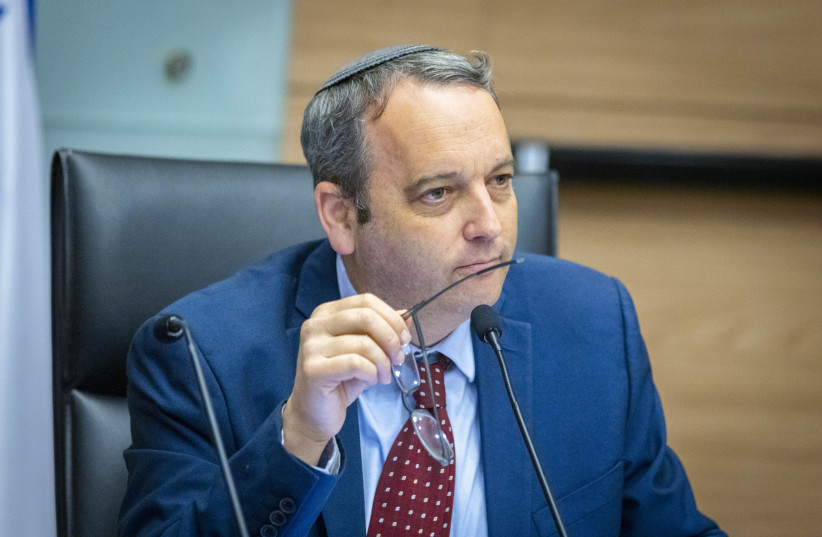Opposition MK refers to haredi women as ‘wombs for rent’
Yesh Atid MK Dvora Biton referred to haredi (ultra-Orthodox) women as “wombs for rent” during a debate in the Knesset on the law to postpone the elections for choosing Israel’s chief rabbis on Wednesday.
Labor Party MK Gilad Kariv attacked ultra-Orthodox MKs from the coalition who opposed the idea of a haredi woman being a council member, according to Maariv. Biton made the comments amid the verbal scuffle that unfolded.
“This group is fine with the world of Torah living off the exclusion of ultra-Orthodox women from the workforce and public space, but heaven forbid that there should be a local council member who is an ultra-Orthodox woman or a religious council member,” Kariv said, attacking the ultra-Orthodox lawmakers.
“Heaven forbid that there should be a female ultra-Orthodox Knesset member. This hypocrisy of this group of men has followed them their entire lives.”
 MK Gilad Kariv leads attends a Law and Constitution Committee meeting on June 26, 2022 (credit: OLIVIER FITOUSSI/FLASH90)
MK Gilad Kariv leads attends a Law and Constitution Committee meeting on June 26, 2022 (credit: OLIVIER FITOUSSI/FLASH90)Power struggle over Chief Rabbinate selections
Over the past few days, the power struggle between Shas and Otzma Yehudit has sharpened after Otzma Yehudit chairman Itamar Ben-Gvir attempted to block a bill that would give Shas near-complete control over rabbincal appointments in cities, towns and even neighborhoods throughout Israel.
Shas, the Sephardi haredi (ultra-Orthodox) party, controls both offices that have the most influence on religious services – the Religious Services Ministry and the Interior Ministry, and is attempting to pass two laws that intend to consolidate its power at all levels of the rabbinical hierarchy.
The first bill is to postpone the election for the country’s Ashkenazi and Sephardi chief rabbis and the Chief Rabbinate Council by approximately eight months, from July (chief rabbis) and August (rabbinical council) 2023, to April and June 2024, respectively.
Israel has two chief rabbis, one Ashkenazi and one Sephardi, who are elected every 10 years by a 150-member committee made up of 70 elected officials at the local and national level, as well as 80 rabbis from the neighborhood to the city level. This committee also elects 10 out of the 17-member Chief Rabbinate Council, which is elected every five years.
The other seven members of the Chief Rabbinate Council are the two chief rabbis, four chief rabbis of Israel’s “big cities,” and the IDF Chief Rabbi. The Chief Rabbinate Council has statutory power over a number of fields, including marriage and divorce, burial, and kashrut certification.
Eliav Breuer has contributed to this report.





Comments are closed.